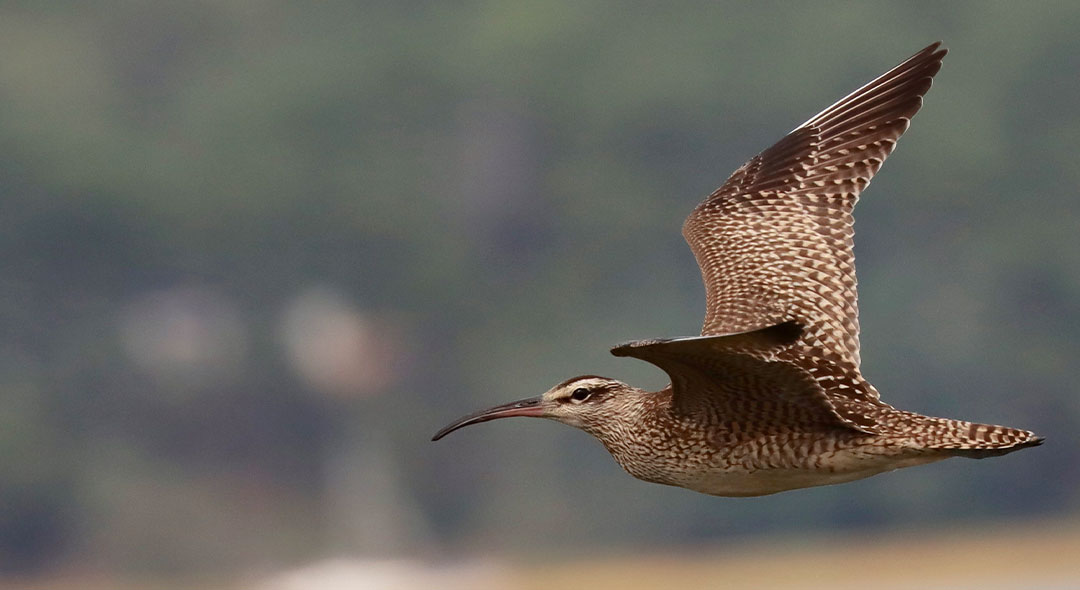Search Results

As oceans heat up, the types of seafood we eat will change
Read about Manomet's green crab work in the June issue of Eating Well magazine.
What’s it like to be a Manomet scientist?
Have you ever thought about what it would be like to spend a day in the field with a Manomet scientist? You might find yourself measuring green crabs dockside in Maine, counting shorebirds in the Arctic National Wildlife Refuge, or deep in a Georgia forest helping landowners prepare for climate change. Well, if you’re a member of Manomet, you don’t have to wonder because our “In the Field” events let you engage with our scientists where they work and see our projects firsthand. It’s a unique opportunity to experience our mission in action, and it’s one of the exclusive benefits of supporting Manomet as a member. Our “In the Field” lineup for Spring 2019 is set, and we’ve packed it...
Can you imagine…
Can you imagine a world with streams of clear water flowing, oceans abundant with diverse fisheries, lush, healthy forests helping to produce clean air and habitat for wildlife... Healthy lands to grow crops for the food needed to sustain us all, and when looking up you see a beautiful sky with a flock of birds soaring high above—migrating north to ensure their future... At Manomet...this is our vision every day...helping to create a sustainable world. For over 50 years Manomet has studied these migratory patterns and the birds are telling us...OUR world is changing... The climate is warming. There is less land for them and US. Our streams, waterways, and oceans are being challenged. We also learned that to make...
Adapting to the warming Gulf of Maine
Fishing in the Gulf of Maine generates nearly $4 billion each year and provides as many as 100,000 jobs. This economy is threatened if we don’t understand how to adapt to the changes in species brought on by the warming Gulf of Maine. Manomet fisheries scientists Marissa McMahon, Anne Hayden, and Ethel Wilkerson will represent Manomet at the Maine Fishermen’s Forum in Rockport, Maine, from February 28 through March 2. This annual event is the largest gathering of fishermen, scientists, and policymakers in New England and a great place to showcase our work to sustain fish and fishing livelihoods in a changing Gulf of Maine. Marissa, Anne and Ethel will share information on Manomet’s clam farm work, black sea bass research, and...
Getting green crabs on the plate: Meet Chef Ali Waks Adams
Manomet’s work with invasive green crabs in the Gulf of Maine aims to create a value-added product that would provide a new source of economic opportunity for fishers and coastal communities. Our focus has been primarily on ways to use the green crabs for food, modeling our work on the soft-shell crab fisheries in Venice, Italy. To achieve our goals, we need talented chefs who can take these tiny little crabs and transform them into appealing food that consumers love. That’s where our partner Chef Ali Waks Adams, Coast Bar + Bistro, located in The Daniel Hotel, in Brunswick, Maine, comes in! Chef Ali has been working with Manomet’s Senior Fisheries Scientist Marissa McMahan for nearly two years to find...
These crabs may not be friends, but they can be food
Manomet's green crab research featured in The Boston Globe.
Partner Highlight: Jay Holt, supporter of aquaculture and childhood education
For more than five years, Manomet has been working with the Holt-Muench family, represented primarily by John A. “Jay” Holt, in Georgetown, Maine. Thanks to their commitment to a more sustainable future, the family’s property serves as an outdoor laboratory and classroom where scientists (professional and citizen), shellfish harvesters, students, teachers, and other community members come together to learn more about clams, an integral part of their community’s economy and culture. The Holt-Muench family purchased property in Georgetown over 80 years ago and continue to have deep roots in the community to this day. Jay Holt’s work to support the health of local shellfish goes back more than 25 years through his work with the Georgetown Shellfish Conservation Committee. This...
Is a soft-shell green crab industry viable in New England?
NOAA Fisheries awards Manomet $267,440 to investigate Brunswick, ME – September 11, 2018 – Manomet has been awarded a grant of $267,440 by the NOAA Saltonstall-Kennedy Grant Program to expand work to develop a lucrative green crab fishery in New England and provide a new source of economic opportunity for fishers and coastal communities. The grant will be used to implement long-term green crab population monitoring, explore new pathways to developing the soft-shell green crab fishery, increase marketing and outreach efforts, and begin to determine the economic viability of a soft-shell fishery. The European green crab was brought to the U.S. in the early 1800’s. As the Gulf of Maine warms, this invasive species is thriving. It is a voracious...
Shellfish Aquaculture and Management
Shellfish landings in Maine are at historic lows—due to the effects of climate change and an increase in predators like the invasive European green crab (Carcinus maenas) and the milky ribbon worm (Cerebratulus lacteus). Manomet is working with shellfish harvesters and aquaculturists on a suite of aquaculture projects to diversify clam, oyster and quahog harvests. Soft-shell clam aquaculture Soft-shell clams (Mya arenaria) are the second most valuable fishery in Maine—valued at about $18 million in 2014. Unfortunately, soft-shell clam landings in many coastal communities have reached historic lows. A soft-shell clam farm involves seeding sub-productive intertidal flats with hatchery-raised clams and then covering the seeded area with plastic netting to protect the clams from one of its main predators, the...
Turning Maine’s Invasive Crab Problem Into a Potential Tasty Profit
Don't miss this story on NBC10 about Manomet's work with the invasive green crab!



